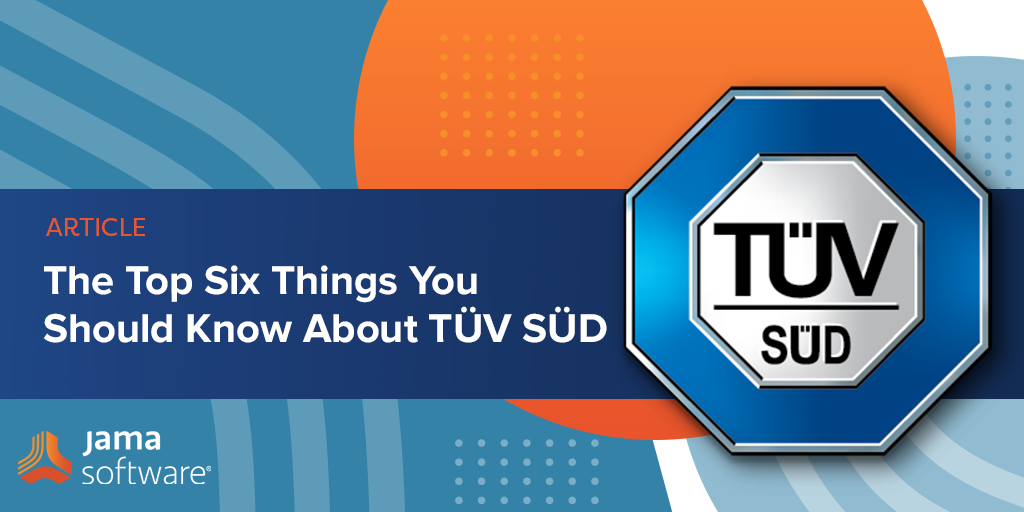
The Top Six Things You Should Know About
In the quest for innovation, product testing, compliance, and safety certifications remain key to accessing markets and gaining customers. No one wants to buy a product, service, or process that hasn’t been thoroughly vetted by an independent body. In the context of global markets, few certifications carry the importance or significance of those from TÜV SÜD, but in the United States, the various companies that are part of the TÜV Association are not widely known. So, what is TÜV SÜD, and why is it so important to product development?
1: What does TÜV SÜD stand for?
“TÜV” stands for “Technischer Überwachungsverein,” which translates to “Technical Inspection Association” in English. There are several independent companies that are part of the TÜV Association; TÜV SÜD is headquartered in Munich and employs approximately 25,000 people around the globe.
2: What type of company is TÜV SÜD?
TÜV SÜD is focused on protecting people and the environment through rigorous testing, certification, auditing, and advisory services. The company helps ensure regulatory compliance of new and updated technologies, especially in automotive innovation and development, and it functions as a notified body in Europe for medical devices. The TÜV companies trace their origins back to the 1860s when they were first formed to oversee the safety of steam engines.
3: What is the difference between TÜV SÜD and TÜV Rheinland?
TÜV SÜD and TÜV Rheinland are different companies that both provide similar services. All TÜV companies are at least 25.1% owned by the TÜV Association. There are currently six main members of the TÜV Association, all of whom are denoted by the brand “TÜV” plus the regional suffix, such as SÜD or Rheinland. The other TÜV companies include TÜV Nord, TÜV Thüringen, TÜV Saarland, and TÜV Austria.
RELATED: Traceable Agile™ – Speed AND Quality Are Possible for Software Factories in Safety-critical Industries
4: What is a TÜV SÜD Certification?
A TÜV SÜD Certification assures governing bodies and consumers that a product, service, or process has passed relevant safety testing and meets relevant compliance requirements. The certification process is rigorous and comprehensive and involves multiple steps, including steps to review requirements and establish processes followed during development.
5: Why is achieving TÜV SÜD Certification so important?
TÜV Certification is recognized internationally as a sign of quality and thorough review—similar to an ISO or UL certification. Although it originated in Germany, it is regarded globally as evidence that your product, service, or process has attained high standards of safety, quality, and sustainability. With a TÜV SÜD Certification, you can achieve access to additional markets and give your customers peace of mind.
6: Is Jama Connect® certified by TÜV SÜD?
Jama Connect received its first TÜV SÜD certification in 2016. Jama Connect is TÜV SÜD certified for developing safety-related products according to ISO 26262 (up to ASIL D) and IEC 61508 (up to SIL 3). Jama Software is the first vendor that is both SaaS and Agile to receive the certification. In 2019, Jama Software completed additional certification for Jama Connect as a software tool for the development of medical devices according to IEC 62304 and railway applications according to EN 50128.
RELATED READING: Simplify Compliance With Proactive Risk Management Software
Don’t neglect important certifications. Even if you are already pursuing other certifications, the TÜV SÜD Certification could be an important addition to your automotive, medical, or railway products and services. Jama Connect can help you meet the requirements tracing and process needs that will set you up to achieve the TÜV SÜD Certification and expand to new markets and customers. To learn more, contact us.
- Tackling Industrial Manufacturing’s Biggest Challenges: Solutions That Work - October 24, 2024
- How to Overcome Development Challenges: Collaboration & Alignment in Complex Product, Systems, and Software Development - August 13, 2024
- How to Overcome Development Challenges: Proving Regulatory Compliance in Complex Product and Systems Development - July 24, 2024